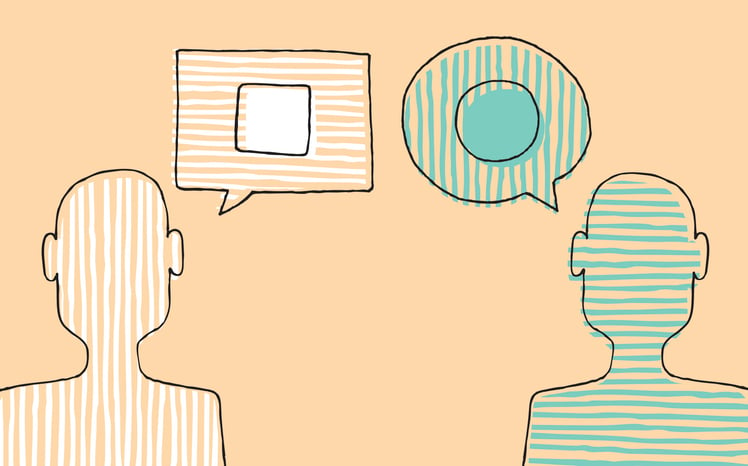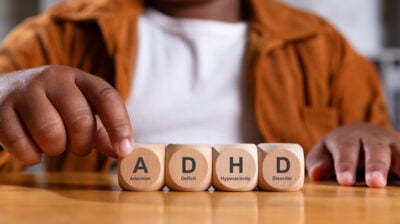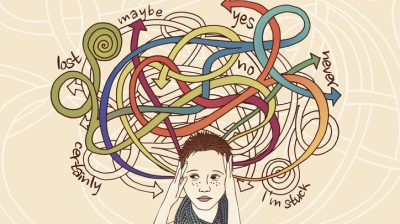How to cope with ADHD communication difficulties
Coping strategies for people with ADHD who are experiencing communication difficulties in relationships.

Navigating relationships can be challenging, and ADHD can add extra layers of difficulty. This factsheet offers practical tips and strategies to help you manage ADHD communication difficulties. Here, you’ll find information on how to improve communication and strengthen your connections with others.
Read more about ADHD symptoms, how to get an ADHD assessment, and ADHD treatment options.
This article covers:
Scheduling times for important conversations
Managing your emotions during difficult interactions
Explaining to others how ADHD affects your communication style
Recognising when your anger may be adaptive
Tackling ADHD communication difficulties
If you have ADHD, you may get easily distracted or find it difficult to focus on what the other person is saying when talking to a friend, a partner, or a family member. ADHD communication difficulties may leave you or the person you care about feeling isolated and misunderstood. This may be especially true in environments with lots of distractions or when a person interrupts you in the middle of another activity. Difficulties with remaining focused on what the other person is saying or switching into “conversation mode” mid-activity can lead to misunderstandings or hurt feelings. You may have been told “You’re not listening to me” often. If you struggle to stay focused on the other person, especially when you’re experiencing strong emotions, consider scheduling regular check-ins with your friend, family member, or loved one.
Schedule times for important conversations
Regular check-ins can be used to touch base on practical everyday matters (e.g., the car needs some maintenance work) or as an entry point into conversations about more difficult topics, such as money matters or unresolved emotional issues. If your partner has ADHD, it’s helpful to remember that even if they seem like they’re not listening, it doesn’t mean they aren’t hearing you. A gentle touch on the elbow along with eye contact can be an effective way to get their attention.
Scheduling important conversations and regular check-ins can help you avoid being caught off guard and allow you to feel prepared with coping strategies to manage the interaction. Devoting a specific time and place, ideally a space free of distractions, where you can check in with the other person regularly can also avoid the risk of becoming overwhelmed or zoning out.
Find comfortable ways to communicate effectively
You may find that your ADHD symptoms can sometimes make communication difficult. Below are some coping strategies that can help to minimise unnecessary conflict and make challenging conversations more constructive.
- When discussing important topics, opt to speak to the person in-person where possible. Sitting next to them, as opposed to face-to-face, can feel like a less threatening way to communicate
- Listen actively to the other person without interrupting
- Echo back what you understand them to be saying, ideally rephrasing it in your own words
- Ask for clarification when certain points are unclear or confusing
- Remember that negative feedback is about a behaviour, not a reflection of you as a person
- Respectfully ask for a time-out to gather your thoughts, calm down, and breathe before returning to the challenging conversation
Manage your emotions during difficult interactions
Handling negative feedback from others can be particularly challenging. Maybe you feel like your usual responses to stressful conversations make things worse instead of calming the situation and building connection. When things get heated, you might resort to familiar but unhelpful thought patterns and behaviours, making it harder to resolve the conflict.
Recognising that your usual response might not be helpful and choosing a different approach that calms the situation instead of escalating it can make a big difference, especially with a cooperative loved one. Below are examples of responses that can inflame a situation and alternative approaches you might try instead.
Mind Reading
When a person engages in “mind reading,” they are assuming they know what the other person is thinking or feeling without asking them. They are relying on their assumptions without clarifying the other person’s true intentions or the real meaning of their words.
Alternative response: Empathy
Empathy could be seen as a more positive kind of “mind reading,” where you try to understand what the other person is thinking or feeling by imagining what it might be like to “walk in their shoes.” Sometimes, symptoms of ADHD, like inattention, distractibility, and impulsivity, can give the impression of a lack of empathy or concern for a situation. However, people with ADHD are equally capable of feeling empathy. Certain communication strategies may help you and the other person to connect with each other and your unique experiences.
Instead of assuming that you understand what the other person is thinking or feeling, ask them about their experience directly. Two helpful communication strategies for doing this are summarising and disarming.
Summarising involves listening out for the other person’s main points and reflecting back to them what you have heard and understood. When summarising, you might begin by saying, “So what you are saying is…”
Disarming involves responding in a non-defensive way. Try not to see the other person as launching an attack that you need to defend against. Instead, try to find common ground or the “grain of truth” in what they are saying. This does not mean that you have to agree with them. Depending on the situation, it can simply mean acknowledging that the other person has a right to feel the way they do.
One practical way to disarm or react non-defensively is to use “I” statements instead of accusatory “you” statements. For example, instead of saying, “You caused this,” you could say, “I felt hurt when you assumed I wasn’t listening.” When you reframe your statements in this way, you are taking ownership of or responsibility for your own emotions.
Defensiveness
When a person is defensive, they may feel as if they are locked in a battle with the other person. They may feel as if letting their guard down is equivalent to “losing” (e.g., “Yes I might have been late to the party but what about that time when you were late…”).
Alternative response: Curiosity
You may be viewing the other person’s statements as an attack requiring a counterattack. Instead, try approaching the situation with curiosity about why they think and feel the way they do. This shift from defensiveness to curiosity can reduce the emotional intensity of the interaction and lead to a more constructive dialogue. It’s not about “losing the battle,” but about understanding and connecting with the other person.
Reacting
You may find that you are prone to emotional outbursts during difficult or emotionally charged conversations. This can lead to regret and feelings of shame afterward.
Alternative response: Being Mindful
Having an emotional outburst doesn’t make you a bad person, and practising self-compassion is important. However, you may find that situations are less likely to escalate and resolutions are reached more quickly when you are mindful of your feelings as they arise, rather than immediately acting on them. This may be challenging at first, since reacting may be your automatic defence. However, it is possible to learn a mindful response with time, patience, and regular practice.
To respond mindfully instead of reacting impulsively, stay with your feelings instead of trying to bury them. Resist the temptation to leap to action. If these feelings become overwhelming during an interaction, ask for a brief time out to let the intensity subside before re-engaging.
If you want to learn more about the impact of unhelpful thought patterns, check out our factsheet on how to change your thought patterns.
Explain how ADHD communication difficulties affect you
If you have ADHD, it can be helpful to let others know how your symptoms impact your communication. This can prevent misunderstandings and help people see that certain behaviours aren’t meant to be rude, but are actually caused by ADHD. ADHD communication difficulties can lead to feelings of distress, overwhelm and loneliness.
You might say something like, “I sometimes have trouble concentrating or staying focused, especially when there’s a lot going on around me,” or “When emotions are high, I find it hard to process what’s being said.” You could also explain, “I might seem distracted, but it’s just because my mind can jump around a lot.”
Being open about how ADHD affects you can help others understand and be more supportive in conversations.
Recognise when your anger is adaptive
Positive coping techniques and communication strategies can help navigate difficult conversations with ADHD symptoms. However, it’s also important to recognise when your frustration or anger is an adaptive response to abusive or threatening behaviour. Empathy, curiosity, and mindfulness are effective approaches. But they are only effective when you are interacting with someone who cares for you and is equally invested in better communication. It can be equally beneficial to know when to withdraw from an interaction where the other person refuses to cooperate or is actively abusive. Remember, turning a challenging conversation into a constructive one is the responsibility of both participants, not just yours.
For more support and information on common ADHD challenges, check out our tips on getting started with tasks and how to navigate time blindness.
Feeling overwhelmed and want to talk to someone?
- Get anonymous support 24/7 with our text message support service
- Connect with a trained volunteer who will listen to you, and help you to move forward feeling better
- Whatsapp us now or free-text SPUNOUT to 50808 to begin.
- Find out more about our text message support service
If you are a customer of the 48 or An Post network or cannot get through using the ‘50808’ short code please text HELLO to 086 1800 280 (standard message rates may apply). Some smaller networks do not support short codes like ‘50808’.






